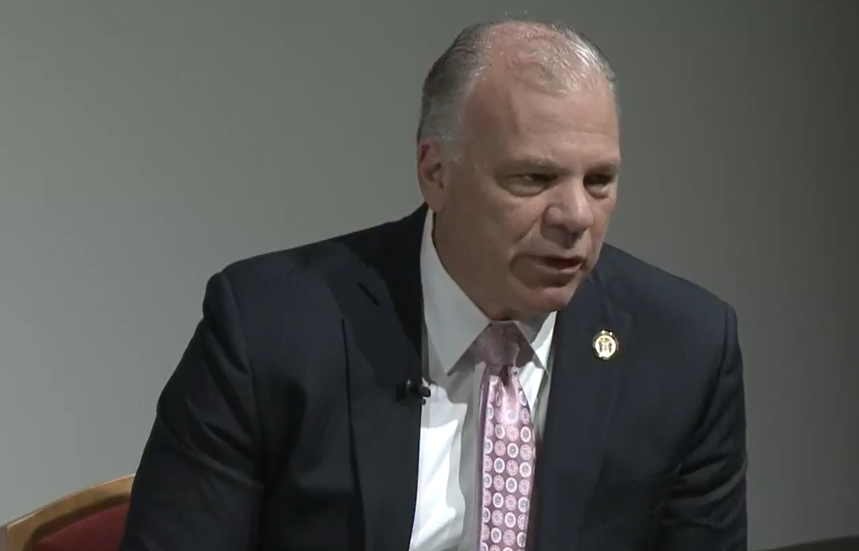Senate Approves Sweeney’s Emergency Assistance Bills for the Homeless Reflecting Compromise With Governor

Reflects Agreement To Extend Aid for Those ‘Living on the Edge,’ Create Office of Homelessness Prevention
Trenton – The Senate today voted to approve legislation sponsored by Senate President Steve Sweeney to expand housing aid for the most vulnerable families and individuals who face the imminent threat of becoming homeless, including the chronically ill and disabled,. The bill, S-3586, is the result of an agreement between Senator Sweeney and Governor Phil Murphy following the Governor’s veto of Senator Sweeney’s original legislation.
A companion bill, S-3585, also approved by the Senate, would create a new Office of Homelessness Prevention.
“My goal all along has been to provide assistance to a very vulnerable population of people who are living on the edge and face the imminent threat of being forced onto the streets,” said Senator Sweeney (D-Gloucester/Salem/Cumberland). “The absolute lifetime limit on Emergency Assistance is needlessly harsh. This assistance can be a lifeline for the most vulnerable members of our communities who are experiencing hard times that make it all but impossible for them to meet basic needs, including food and shelter.”
The assistance includes food and clothing, as well as temporary rental assistance or mortgage payments to keep people housed and utility payments to keep them warm.
The bill would nullify the current lifetime cap on Emergency Assistance benefits. Emergency assistance is generally limited to 12 months, with additional assistance for up to six or 12 months more in cases of extreme hardship. Under the bill, any months of assistance accrued more than seven years earlier would not count towards the 12 month limit. These provisions were contained in Sweeney’s original bill.
The measure includes an annual $20 million cap, which is the maximum that housing advocates have said is needed.
The companion bill would allocate $3 million to create the Homelessness Prevention Office to develop comprehensive policies to prevent and combat homelessness and expand access to housing options. It would also coordinate among state and local agencies and private organizations that provide services to persons who are homeless or at risk for homelessness.
Senator Sweeney noted that social service advocates argue that the aid is needed because the most vulnerable populations – including those suffering from abuse, addiction, Post-Traumatic Stress Disorder, mental illness or other disabilities, and the chronically unemployed – are likely to go through cycles of homelessness over the years, no matter how hard they struggle to afford the basic necessities.
New Jersey had an estimated homeless population of 9,398 as of January 2018. Of that number, 1,093 were family households, 555 were veterans, 518 were unaccompanied young adults and 1,286 were individuals experiencing chronic homelessness.
The Senate votes were 34 – 0 for S-3586 & 28 – 7 for S-3585. .










